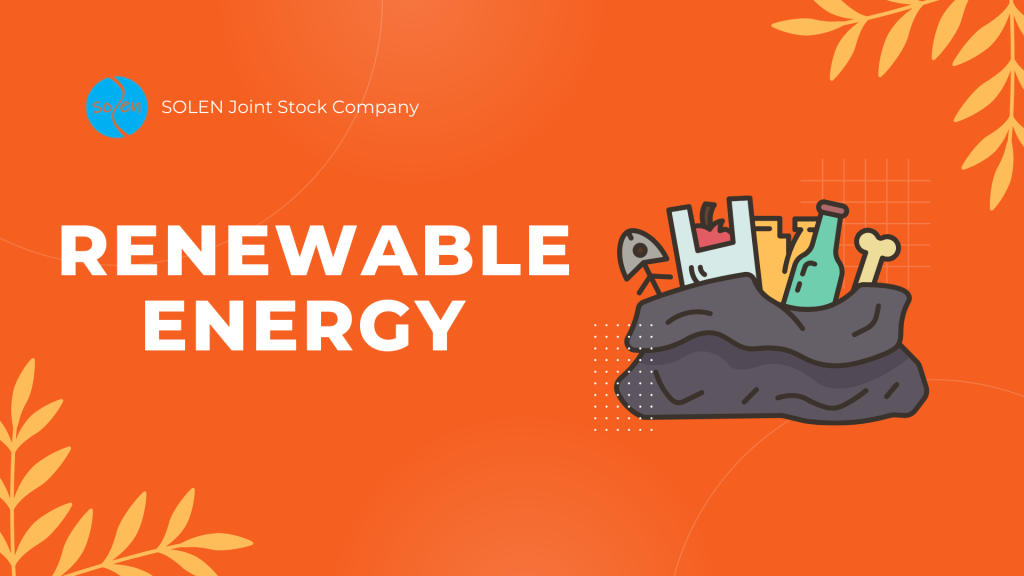Wind, solar, biomass, hydroelectricity,… are renewable energies. Or to be more precise, they are a renewable energy source. With the formation and development of today’s industries, sustainable development is the top difficult problem for businesses and governments. Therefore, taking advantage of this renewable energy source is being promoted and deployed in many fields. The article below will summarize some general information about renewable energy for readers to understand better.
I. What is renewable energy?
– Renewable energy, also known as renewable energy, is a type of energy source generated from unlimited or rapidly renewable natural resources. This includes using energy from sources such as the sun, wind, rain, tides, ocean waves, and underground heat.
– The basic principle of renewable energy is to use natural and continuous processes in the environment to generate electricity, heat, or other energy for technical uses. The development and use of renewable energy is positively impacting the environment and energy supplies globally.

Figure 1: Illustration of renewable energy (Source: Google Images)
II. The advantages and disadvantages of renewable energy.
– Advantage:
The advantages of renewable energy make it an attractive solution for meeting the world’s energy needs and reducing negative impacts on the environment such as:
- Renewable and infinite reserves: Renewable energy sources such as solar, wind, tidal, and geothermal energy are endless and renewable.
- Clean and environmentally friendly energy: Using renewable energy does not cause carbon emissions and other types of pollution. This helps reduce the industry’s impact on climate change and the environment.
- Wide exploitation capabilities: Renewable energy can be used in many different locations, from rooftop solar power systems to large offshore wind farms. This creates a great potential for harnessing energy from renewable sources.
These advantages not only help reduce negative impacts on the environment but also create opportunities for sustainable development and employment sources in the renewable energy industry. However, contrary to the advantages, current renewable energy still has certain limitations.
– Defect:
- Low stability: Renewable energy sources such as solar and wind are affected by natural factors such as weather. This makes the stability of renewable energy supplies lower than that of fossil energy sources.
- High initial costs: Renewable energy technologies, such as solar power systems or wind power substations, require a large initial investment to install.
- Energy storage is difficult: Renewable energy sources cannot be produced continuously, so an efficient energy storage system is needed for use when there is no renewable energy source.



 Tiếng Việt
Tiếng Việt 日本語
日本語